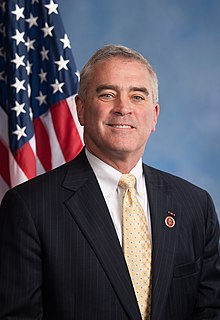Цитата Брета Стивенса
Я понимаю, если вы консерватор, и вы говорите, я не знаю, «Правительство не должно навязывать то, что преподают в классах» или «Правительство слишком навязчиво в нашей экономической жизни», ну, это Стандартный консерватизм.
Связанные цитаты
Политики из Вашингтона думают, что правительство может принимать лучшие решения, чем мы с вами. Но мы знаем лучше. Мы знаем, что меньшее, менее навязчивое правительство приведет к реальному экономическому процветанию. Мы знаем, что именно благоприятная для бизнеса политика, а не бюрократическая волокита, приведет к реальному росту.
Чем больше правительство, тем больше снижается наш уровень жизни. Нам как цивилизации повезло в том, что прогресс свободного предпринимательства обычно опережает регресс государственного роста, ибо, если бы это было не так, мы с каждым годом становились бы беднее — не только в относительном выражении, но и в абсолютном выражении. Рынок умен, а правительство глупо, и этим качествам мы обязаны всем нашим экономическим благополучием.
По моему мнению, всегда должно быть сочетание экономического либерализма — что означает небольшое правительство, большой акцент на рынках — но также и определенная степень социального консерватизма, не одобряющего перемены, если эти перемены не приносят пользы. Поэтому я называю себя экономическим либералом и социальным консерватором.
Я не сторонник отсутствия правительства. Вам нужно правительство. Но, делая так много вещей, которые правительству делать нечего, оно не может делать то, что оно одно может делать хорошо. По моему мнению, нет другого учреждения, которое могло бы обеспечить нам защиту нашей жизни и свободы. Однако сегодня правительство плохо выполняет эту основную функцию именно потому, что отдает слишком много своих усилий и тратит слишком много наших доходов на вредные вещи. Поэтому я не сомневаюсь, что это главная проблема, с которой мы сталкиваемся.
Кто знал в 2000 году, что сострадательный консерватизм означал большее правительство, неограниченные государственные расходы, вмешательство правительства в личные дела, некомпетентность правительства и кумовство в оказании помощи при стихийных бедствиях? Кто знал в 2000 году, что шесть лет спустя президент наложит вето только на законопроект о финансировании исследований стволовых клеток? Более точным термином для политической философии г-на Буша могло бы быть несдержанный консерватизм.
Популизм по своей сути представляет собой просто решительную сосредоточенность на том, чтобы помочь людям вырваться из железной хватки корпоративной власти, подавляющей нашу экономику, окружающую среду, энергетику, средства массовой информации, правительство. Одно большое различие между настоящим популизмом и чаепитием состоит в том, что настоящие популисты понимают, что правительство стало дочерней компанией корпораций. Так что вы не можете сказать, давайте избавимся от правительства. Вы должны сказать, давайте возьмем на себя правительство.
Что правительство должно делать для своего народа? Чтобы улучшить уровень жизни, чтобы помочь им найти работу, отправить детей в школу и получить доступ к медицине и больницам. Правительство не может напрямую предоставлять эти общественные товары и услуги, но оно должно нести ответственность за то, предоставляются ли они гражданам или нет.
И я просто думаю, что мы находимся на этапе нашей экономической жизни здесь, в нашем штате - и - и, откровенно говоря, по всей стране, когда повышение налогов - это просто неверный путь. Жители нашего штата не убеждены в том, что правительство штата, правительство округа, местное правительство сделали все возможное с деньгами, которые мы им уже дали, а не с деньгами, которые у нас есть...
Правительство — это не решение нашей проблемы, правительство — это проблема. ... Правительство не решает проблем; он их субсидирует. Взгляд правительства на экономику можно резюмировать несколькими короткими фразами: если она движется, облагайте ее налогом. Если продолжает двигаться, отрегулируйте. Если он перестанет двигаться, субсидируйте его. ... Проблема не в том, что люди платят слишком мало налогов, проблема в том, что правительство слишком много тратит.
Неоконы не испытывают такой тревоги или беспокойства по поводу роста государства в прошлом веке, считая его естественным, более того, неизбежным... Люди всегда предпочитали сильное правительство слабому правительству, хотя они, конечно, не любят ничего, что попахивает чрезмерно навязчивым правительством.
































